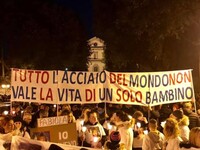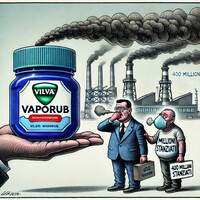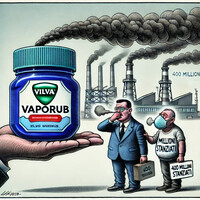A dossier for Amnesty International
A dossier for Amnesty International
Taranto as in the Niger river delta: violated rights and children in danger.
We believe that the situation of Taranto, with regard to the scientifically documented aspects to those which are symbolic of the story in terms of injustice, has many similarities with that of the Niger delta, for which Amnesty International has prepared a special report in which we read the following information:
Nigeria, a new Amnesty International report on pollution in the Niger delta: Shell must commit to pay a billion dollars to clean up the region. A demonstration in Rome will follow on November 22nd.
http://www.amnesty.it/delta-niger-shell-paghi-un-miliardo-di-dollari-per-bonificare
And also
For several decades, oil companies, in the delta of the Niger river in Nigeria - in particular, Eni, Total and Shell - benefiting from the weakness that characterizes Nigeria’s law system, have caused numerous environmental damages and human rights violations to the detriment of the local population. The pollution has contaminated the soil, water and air of the Niger delta, contributing to the violation of the right to health and a healthy environment, the right to decent living conditions, including the right to food and water, and the right to earn a living through work.
http://www.amnesty.it/flex/cm/pages/ServeBLOB.php/L/IT/IDPagina/2352
The similarities between Taranto and the Niger delta come from the extent of contamination and the objective responsibility of the industrial area, in which the highest environmental impact has been made by the biggest European steel industry, first Italsider (state-owned) and then Ilva (private). The reclamation was always avoided, disregarding the principle according to which "the polluter pays".
Here is the extent of contamination by dioxins, PAHs (polycyclic aromatic hydrocarbons) and heavy metals (what should be reclaimed in Taranto):
● Small Sea (Mar Piccolo): its bigger bay has been inhibited to mussels farming, traditionally and extensively carried in this very area.
● Great Sea (Mar Grande): fishing has been inhibited within the Ilva draining area.
● Countryside around the Ilva plant: grazing has been forbidden in the area within 20 Kilometers from the plant.
● Tamburi town district (literally adjacent to the Ilva plant): children cannot play in green areas and schools are subject to high sediments of dust containing dioxins and PAHs.
● Polluted aquifer and soil of the Ilva plant.
In Taranto, there is a clear violation of health and a healthy environment rights, the right to decent living conditions, the right of children to be born in a safe environment, as well as the right to be able to transfer intact DNA from one generation to another without the danger to receive genotoxic mutagenic substances as an inheritance, mainly emitted by Ilva. The city of Taranto has become a laboratory in which to experience the effects of DNA mutations associated to the stubborn will of the Italian State to operate - against all precautionary principle - the largest and most polluting steel plant in Europe at just 150 meters from Tamburi district flats.
The health effects associated with unhealthy environment have been reported by doctors in Taranto. These are summarized in these few but significant information.
Children who are born with cancer
"Here the children are born with cancer". Dr. Giuseppe Merico, head physician in the pediatric ward of the hospital "Santissima Annunziata", has been stating this for a long time: "In Taranto there are kids who are born already sick".
"There have been already five since the beginning of 2012", says Merico. “The last case? An infant of three days with prostate cancer”.
Source: www.affaritaliani.it, 4/12/2012
Genotoxic damage: children with altered DNA
"There are children who are born with cancer. Mothers are transmitting it. Two cases we have recently discovered in hospital". The warning of Giuseppe Merico, head physician in the pediatric ward of the hospital "Santissima Annunziata" Hospital of Taranto, leaves everybody speachless. "We discovered cancer in these children on their fourth day of life - he says - through a screening which is normally performed to verify malformations of the kidneys. These are two cases of neuroblastoma. This proves that in our city there has been a genotoxic damage. And it's terrible".
Source: La Repubblica newspaper, 23/10/2012
Lead in urine and dioxin in breast milk
The University of Bari has found in the Taranto area an excess of lead in the urine (10.8 micrograms / liter, which exceeds the reference values of 0 to 3.5 micrograms / liter). The Tamburi district is highly polluted by lead. The investigations of the Anti Dioxine Fund have found high concentrations of dioxin in breast milk. The surveys made by PeaceLink and the Anti Dioxine Fund are documenting the presence of lead in the blood of children, with serious risks for health and critical effects at cognitive level.
Contamination of the food chain
In Taranto, where the factory with the highest dioxin emissions in Italy is, the alarm has been launched by PeaceLink (analysis of cheese that led to the killing of two thousand sheep and goats, polluted by dioxins and PAHs). The Anti Dioxine Fund has highlighted the contamination of mussels (which led to the ordinance which banned the breeding and consumption of mussels in marine areas with sea bottom polluted by dioxine and PAHs).
Tamburi district (Taranto)
● No children are allowed to play in green areas because of soil contamination.
● Impossibility of exhuming and burying the dead.
● The cemetery is covered by the toxic dust emitted by the Ilva plant.
● The A.I.A. authorization (Integrated Environmental Authorization) requires Ilva to clean at its own expense the Tamburi district and cemetery (prescription nº 94, not yet implemented) .
● The water aquifer runs under the cemetery and the Ilva plant.
This situation of contamination of soil, aquifier and the people themselves has to be put in relation to the enormous mass of environmental emissions, unmatched in Italy in quantity and variety.
They have thus been highlighted by the Public Prosecutor of Taranto.
Conveyed emissions from Ilva's chimneys
● 4000 tonnes of dust
● 11 thousand tons of nitrogen dioxide
● 11 thousand and 300 tons of sulfur dioxide
● 7 tons of hydrochloric acid
● 1 ton and 300 pounds of benzene (carcinogenic)
● 338.5 pounds of PAHs (containing carcinogens)
Not conveyed emissions
● 2148 tonnes of dust
● 8800 pounds of PAHs (containing carcinogens)
● 15 tons and 400 pounds of benzene (carcinogenic)
● 130 tons of hydrogen sulfide
● 64 tons of sulfur dioxide
● 467 tons and 700 kilos of Volatile Organic Compounds (containing carcinogens)
● 544 tons per year of dust due to red clouds caused by the “slopping” phenomenon
Total emissions per inhabitant
● 210 pounds of pollutants per year for each inhabitant of Taranto
● Ilva is too close to the town: is 135 meters from the nearest flats (built prior to the plant)
● The emissions contain not only carcinogenic substances but also mutagens such as benzo (a) pyrene and dioxin
● The emissions also contain heavy metals such as lead, potentially neurotoxic and capable of producing neurodegenerative diseases
The epidemiological survey commissioned by the Public Prosecutor
The survey covered the last 13 years and was presented in 2011. Here is the health situation as shown in the survey:
● 386 deaths (approximately 30 deaths per year) caused by industrial emissions (see page. 219 for the epidemiological technical evaluation)
● 237 cases of malignant tumor diagnosed by hospitalization (18 cases per year) attributable to industrial emissions (see page. 219 for the epidemiological technical evaluation)
Epidemiological technical evaluation: other evidence
● 247 coronary events with consequent recourse to hospitalization (19 per year) attributed to industrial emissions
● 937 cases of hospitalization for respiratory diseases (74 per year) (most part among the children) attributed to industrial emissions
● 17 cases of cancer among children with diagnosed hospitalization linked to industrial emissions.
Conclusions of the Attorney’s epidemiological survey
The experts concluded that continuous exposure to air pollutants emitted by the steel plant have caused "degenerative phenomena of different devices in the human body that result in disease events and death”.
In the face of such evidence, the judiciary had ordered the requisition of polluting plants as a precautionary measure required by the Italian Code of Criminal Procedure.
The plants had to be stopped
"Calling for the adoption, by guardians and all responsible directors, all of the technical measures necessary to prevent the continuation of dangerous circumstances and to eliminate them".
Statement of the GIP (Preliminary Investigations Judge) Patrizia Todisco (08/07/2012).
The judge decision did cause the seizure of the plants and stop of the production line, awaiting for the legal standard compliance. As a response to the Judge’s decision, the Italian Government has allowed the continuation of production and the same time the compliance to the A.I.A. with the law nº 231/2012 (the so-called "Ilva Saving Law") .
Indeed, to stop the Judiciary this law was created on purpose.
The Italian Government - both locally and nationally - has had the tendency to reassure and minimize the danger.
Here's an example.
The “reassuring” attitude of the mayor of Taranto
In October 2011 (before the Prosecutor’s technical survey), the mayor released this statement on “Il Ponte” magazine (published by the Ilva group): "I praise the efforts and results obtained by Ilva. Through the recent clinical data that come from the local health authorities, encouraging results are emerging in relation to diseases, which are not increasing, thanks to the improvement of the environment and air quality".
But it is a very wide network of complicity the one that allowed these absurd human rights violations in a country that should be guaranteed by the standards of European civilization and protection. As an example, here are some more information about what happened.
The so called “Ambiente svenduto” investigation (“Sold environment”)
This is the main investigation made by the prosecutor.
Main types of offense:
● Environmental disaster
● Conspiracy to environmental disaster
● Poisoning of food substances
● The prosecutor's office in Milan is also investigating money laundering, fraud against the state and tax fraud (dealing with Ilva profits transferred in tax haven accounts and the relative funds of the Riva family resulting abroad)
Suspects and arrested
These are the people under current investigation:
● Mr Emilio Riva, the Riva group's founder, under house arrest, convicted for pollution (he actually died in early 2014);
● Mr Girolamo Archina’, former Ilva spokesman, detained in jail;
● Mr Luigi Capogrosso former plant manager;
● Mr Nicola Riva, under house arrest, former president of Ilva;
● Mr Fabio Riva, Vice President of Riva Group, under international arrest warrant, found in London
in January 2013 by Interpol agents (pending extradition).
Investigations also on possible political and technical illegal liaisons
Also in the list of persons under investigation:
● The mayor of Taranto, Mr Ippazio Stefano;
● Provincial Councillor for the Environment Mr Michele Conserva;
● Former scientific and technical advisor of the Power of attorney and professor at the Politecnico di Taranto Mr Lorenzo Liberti.
Additionally, there were friendly phone calls between Mr Girolamo Archina’ (ILVA) and different political and administrative figures involved, including the Governor of Apulia Region, Mr Nichi Vendola (who denies any involvement who is not being investigated at the moment) whom the GIP Ms Patrizia Todisco considers as leading the role of an "occult director" ("I’m still defending your interests" reassures Mr Vendola in a phone call to Mr Archina’).
The only institution that has tried to stop this unbelievable situation has therefore been judiciary and against it a mean war was conducted by the political powers, some of whose members were in collusion with Ilva.
Here are the serious allegations of the judiciary.
Supreme Court of Appeal: "Ilva’s pollution is present"
According to the Supreme Court of Appeal (Corte di Cassazione) "the environmental disaster "in the history of Taranto" was certainly also due to the management after 1995, when the Riva group followed in the ownership and management of the steel plant, and the investigations have made it clear that pollution is still strongly existing at present time".
"Obstinate attitude in criminal conduct"
The Supreme Court of Appeal, in the written sentence nº15667 of April 2012, stressed that the Court of Review of Taranto (Tribunale del Riesame), on August 7th 2012, had highlighted "The tenacity and ruthlessness shown by Mr Emilio Riva, Mr Capogrosso, and Mr Nicola Riva (who succeeded as Ilva CEO after his father), who did show, in their respective roles, the perseverance in their criminal acting, despite the awareness of the very serious offensiveness to the community and the workers of these misconducts and their penal consequences and in spite of the frequent administrative rulings and warnings highlighting the serious environmental problem created by the factory".
We wish to inform Amnesty International of serious violations of human rights, primarily involving the right of children not to be exposed to unacceptable psych-physical hazards, resulting in heavy concern of their parents.
We believe at least two principles are violated.
The principle of precaution
We invoke the Precautionary Principle that is mentioned in Article 191 of the Treaty on the Functioning of the European Union (EU). The precautionary principle may be invoked when a phenomenon, a product or a process can have potentially dangerous effects, identified through a scientific and objective assessment, in the case this evaluation cannot determine the risk with sufficient certainty.
The principle of "the polluter pays"
The reclaiming the Tamburi district will eventually start.
The Ilva plant is less than 200 meters from this district. No technical investigation has yet been made to identify the source of contamination of the area, whose land is polluted by substances such as lead, PCBs and PAHs. Ilva emits lead, PCBs and PAHs, but a thorough study of the sources of contaminants is still missing.
In Taranto the so called “SENTIERI” report (made by the National Institute of Health) is now documenting an excess of mortality from all the above causes by 10%. This means that in Taranto RUSSIAN ROULETTE is being played, where for every 10 human beings one dies because of pollution.
Alessandro Marescotti, Peacelink.
Traduzione di (translated in English by) Marco Schnabl
Articoli correlati
 L'ISS ha sollevato puntuali obiezioni sulla metodologia adottata per la VIS
L'ISS ha sollevato puntuali obiezioni sulla metodologia adottata per la VISE’ stato sottostimato l’impatto sanitario dell'ILVA
Acciaierie d'Italia aveva commissionato uno studio per valutare l'impatto sanitario in uno scenario di 6 e di 8 milioni di tonnellate di acciaio annue sostenendo che grazie all'adozione delle migliori tecnologie le emissioni "post operam" sarebbero rientrate sotto la soglia di rischio.28 February 2025 - Alessandro Marescotti Ha raccontato l'Ilva dal punto di vista delle vittime
Ha raccontato l'Ilva dal punto di vista delle vittimeDomenico Iannacone a Taranto: la vita che si fa racconto
Le storie non esistono se non vengono raccontate. Questo è il cuore del suo lavoro: portare alla luce le esistenze sommerse, le lotte quotidiane, i dolori nascosti ma condivisi. Ha la capacità di entrare in punta di piedi nelle vite degli altri e di restituirle con rispetto e profondità.27 February 2025 - Alessandro Marescotti L'unguento che lenisce le affezioni delle vie respiratorie con un tocco di polveri sottili e benzene
L'unguento che lenisce le affezioni delle vie respiratorie con un tocco di polveri sottili e benzeneIl balsamo d’acciaio che tutela l’ambiente
I 400 milioni che erano destinati alla tutela ambientale e alla bonifica delle aree contaminate vengono dirottati per sostenere la produzione dell’ILVA. Il DDL 1359 evidenzia che "il rischio chiusura dello stabilimento sia quello più rilevante e significativo anche dal punto di vista ambientale".13 February 2025 - Alessandro Marescotti Trasferiti fondi dalle bonifiche ambientali alla produzione di acciaio ILVA
Trasferiti fondi dalle bonifiche ambientali alla produzione di acciaio ILVAGrazie Meloni!
Da Vicks VapoRub a ILVA VapoRub, il nuovo unguento per uso inalatorio è pronto per tutti i bambini di Taranto. Il governo stanzia 400 milioni per questo trattamento balsamico nelle affezioni delle vie respiratorie. La motivazione è che chiudere l'ILVA provocherebbe un "rilevante rischio ambientale".12 February 2025 - Alessandro Marescotti
Sociale.network